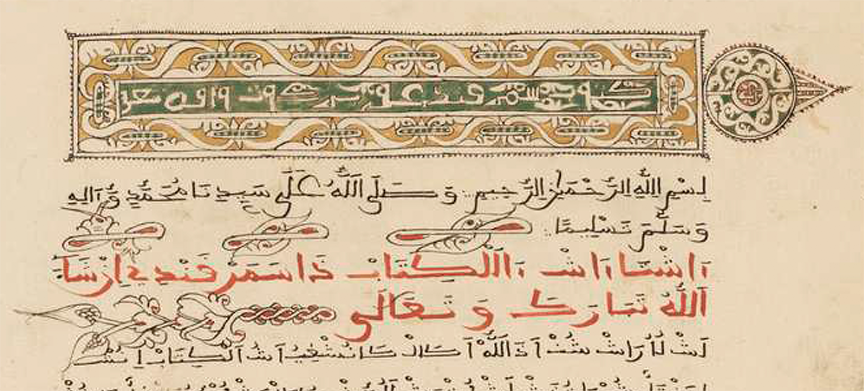Mediterranean Connections: Exploring Islam and Iberia across the Strait of Gibraltar
Join us for an enriching exploration of early modern Iberian, Moroccan, and Mediterranean culture and history with Dr. Elizabeth Spragins.
Learn to Read Spanish in Arabic Script: An Introduction to Aljamiado
In the medieval and early modern Iberian Peninsula, communities of Muslims and Moriscos (Muslim converts to Christianity) wrote aljamiado (also called aljamía) texts: Spanish, Portuguese, and other Romance languages like Mozarabic and Ladino, recorded in Arabic script. In the first part of this workshop, participants will get a brief overview of the historical, linguistic, religious, and cultural conditions that generated aljamiado writing systems. For the bulk of the workshop, we will learn how to read aljamiado and then collaborate to decipher an aljamiado text. Speakers and readers of all languages are welcome, but we especially hope to recruit those with knowledge of Arabic and/or Spanish, in order to pair readers with different language skills to work together. This workshop is being taught by Dr. Elizabeth Spragins, Assistant Professor of Spanish at College of the Holy Cross. Lunch will be provided.
Date: Monday, March 4th, 2024
Time: 12:00pm - 1:00pm
Location: Howard-Tilton Memorial Library Room 430 (in person only)
Please register here to help us plan for lunch order.
----------------------------------------------------------
A Grammar of the Corpse: Knowledge of the Dead in the Early Modern Mediterranean
Join us to hear Dr. Elizabeth Spragins discuss her new book, A Grammar of the Corpse: Necroepistemology in the Early Modern Mediterranean (Fordham University Press, 2023). This lecture will propose an approach to understanding how dead bodies anchored the construction of knowledge within early modern Mediterranean historiography. The eyewitness and the corpse cooperatively produce what Spragins terms necroepistemology: a system of knowledge grounded in and transmitted through first-hand experiences of the material dead. In this talk, Spragins will analyze the literary and epistemological function that socially and historically significant bodies serve within two texts about the Battle of al-Qasr al-Kabir (1578): a first-hand eyewitness account by a Portuguese veteran, and a 17th-century Moroccan chronicle that explores corpse desecration as a strategy for message discipline about the event. Reading Arabic alongside Portuguese, Spragins responds to the fundamental provocation of Mediterranean studies to work beyond the linguistic limitations of modern national boundaries.
Date: Monday, March 4th, 2024
Time: 5:00pm - 6:30pm
Location: Howard-Tilton Memorial Library Room 430
To attend remotely, please register here to receive the Zoom link.
Published 2/16/2024
